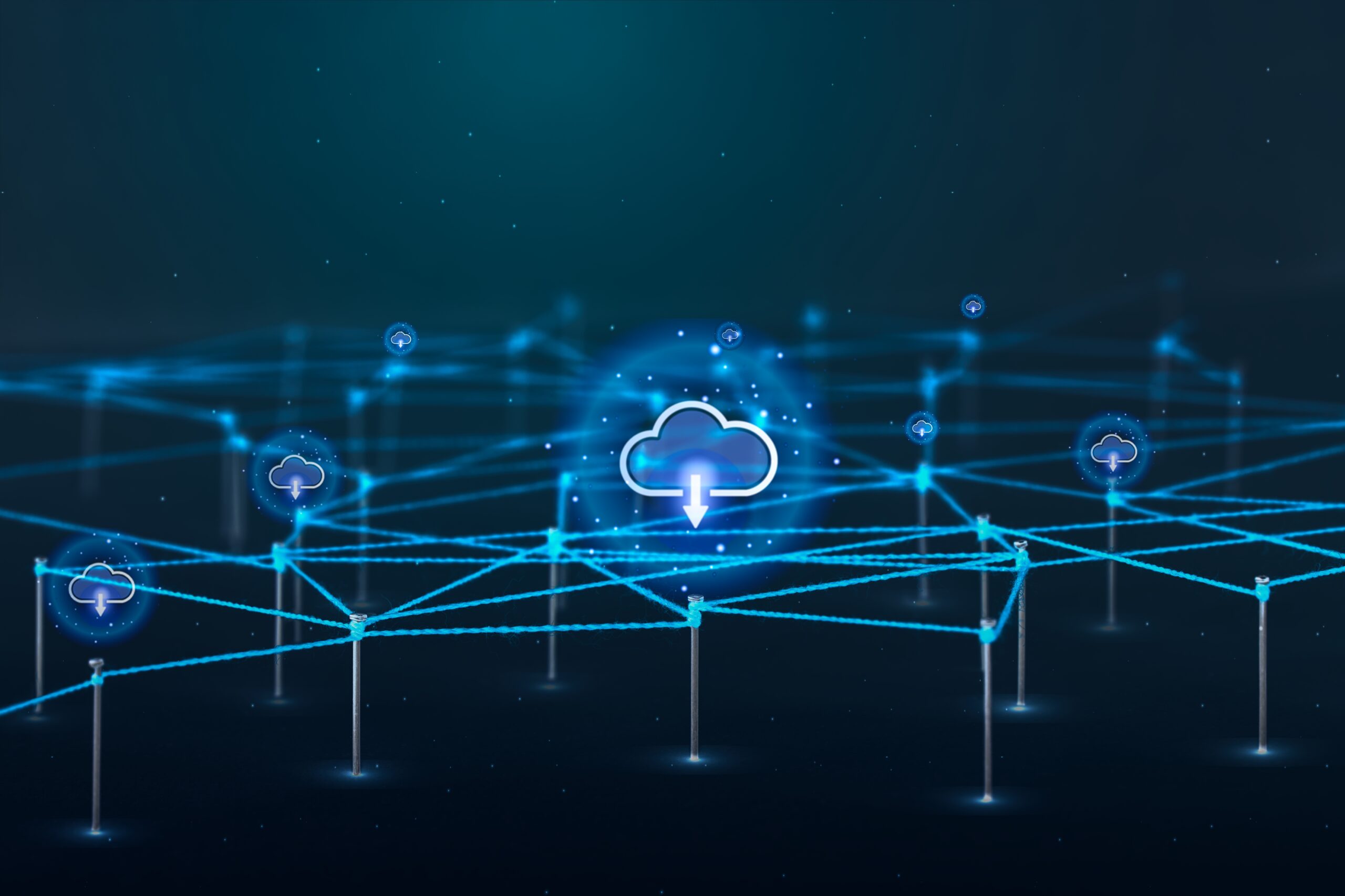Are you facing difficulty in selecting the best cloud platform for your business? If yes, then this blog is definitely for you. Let’s discuss in detail the three best cloud platforms. Although the three platforms are struggling to compete with one another and are engaged in a fierce three-way competition for cloud supremacy. Moreover, there is a long list of things you need to consider before deciding a single cloud computing partner for your enterprise.
Overview of Cloud Computing
Cloud computing refers to the supply of on-demand cloud computing resources and services over the internet. These services include computing, storage, networking, and much more. Furthermore, these resources are all accessible via the internet on a pay-per-use basis. To take full fledge benefits of cloud computing, most businesses are moving to the cloud to gain the following benefits:
- Decreased Infrastructure Upkeep
- Agility
- Increased Security
- Quality Assurance
- Scalability
Businesses have completely transformed the way they work by using cloud computing technology. The top-rank cloud service providers dominating the global cloud market are Amazon Web Services, Microsoft Azure, and Google Cloud Platform. All these cloud service providers have necessary, feature-rich services to be included in the list of top three. However, detailed analysis is required to comprehend the capabilities before deciding on a specific cloud platform. The integral questions that arise here are:
How do you make the final decision about cloud service providers?
How do you wrap up the importance of all three service providers AWS, Azure, and GCP?
The comparative analysis is crucial to analyze all the big 3 CSPs in depth before coming to a final decision. The following factors are covered in this blog post for Azure, AWS, and GCP.
- History
- Availability Zones & Global Infrastructure
- Market Share
- High profile Clients
- Services
- Primary Tools
- Security
- Hybrid and Multi-Cloud Options
- Pricing
- Strengths and Weaknesses
AWS vs Azure vs GCP: History
Amazon Web Services
Amazon Web Services marked its beginning as a service provider with the launch of Amazon Simple Queue Services (Amazon SQS) in 2006. Amazon Simple Storage Services (S3), Elastic Compute Cloud (EC2), and other early AWS services soon entered the market. The foundations for AWS’s ambition to become a significant player in cloud computing were laid with all the initial services.
With a wide array of services offered in the domain of storage, machine learning, IoT, networking, and much more, the total number of services increased to a total count of more than 200. As a result, many small and large-scale businesses can take advantage of Amazon as a platform to create scalable, manageable solutions easily and quickly in a limited span of time.
Microsoft Azure
Microsoft Azure was officially introduced in October 2008, with its internal project named “Project Red Dog.” The sole purpose of Microsoft Azure at the start is to provide an operating system with the core goal to facilitate developers. Microsoft’s public cloud computing platform is also known as Microsoft Azure, formerly Windows Azure.
Offering numerous cloud services such as computing, analytics, storage, and networking, Microsoft is among the best service provider. The Azure cloud platform is designed to assist enterprises in creating and managing multiple applications. Moreover, many tools and technologies are available in the Azure cloud platform to fulfill each business’s unique use case.
Google Cloud Provider
Google released a private preview called App Engine solely for developers. Initially, Google limited the number of users and later provided access to the general public. This developer tool has helped developers to run applications using the google infrastructure.
In 2011, the Google cloud platform established a solid position to be included in the top global cloud service providers list category. GCP became the third most significant cloud computing platform after Amazon and Azure with its cloud computing services. In addition, Google introduced a large number of new services to the Google Cloud Platform in the ten years after the launch of its original product. Google search engine and YouTube are the most renowned products that fall under the umbrella of GCP.
AWS vs Azure vs GCP: Availability Zones & Global Infrastructure
- AWS is the market leader in the cloud domain and offers secure and reliable global cloud infrastructure to run and manage applications. Besides this , AWS spans over 96 availability zones within 36 geographic regions. The future plan includes expanding to 15 more availability zones and within 5 more regions.
- Azure is a secure cloud platform that provides boundaries for data residency and recovery in many regions all across the globe. In addition, this platform operates in 59 regions, and 19 are in the long-term plan to secure the data. Lastly, Azure has 113 operating availability zones that provide a backup in case a data center fails.
- Google Cloud Provider offers robust and highly available architecture to protect data from facility-level disruptions. Furthermore, GCP spans over 24 regions in a total of 73 zones. There are three availability zones per region, with one exceptional case of a single region US-Central, having 4 zones.
AWS vs Azure vs GCP: Market Share
- According to a recent financial report from Amazon and updated information from Synergy Research Group, Amazon Web Services is still a significant cash cow for its corporate parent and has maintained its position as the industry leader in terms of market share for public cloud services. With a 34% market share overall, Amazon Web Services leads the cloud industry.
- According to the reports of Statistica, Microsoft holds the second-highest market share. With a market share of 22 %, the annual share for Azure has increased a lot. With the new data center in Qatar, Microsoft has accelerated its growth to offer enterprise-grade services.
- With its growing popularity, GCP has the potential to overtake other cloud providers as the leading cloud computing platform. However, Google cloud provider is in third place with a market share of 8%.
AWS vs Azure vs GCP: High-profile Clients
AWS: AWS has a more extensive user base and community support than any other player in the cloud industry. As a result, it has more well-known and high-profile clients, like Coca-Cola, BestBuy, Netflix, Airbnb, HTC, Phillips, and many more.
Azure: With the rising popularity of Azure platform, it is gaining a fair share in the market while aligning with well-known clients. Besides this, Azure has 80% of the 500 Fortune organizations as its clients. To name a few, it includes Johnsons, Fujifilm, BMW, eBay, and Starbucks.
GCP: Conversely, Google uses the same infrastructure as Google search and YouTube and has high-end clients. GCP provides a whole suite of cloud services to operate and support any application. In addition, the main GCP clients include Toyota, Spotify, Unilever, Twitter, and PayPal.
AWS vs Azure vs GCP: Services
With more than 200 services Azure and AWS are at the top position. Currently, GCP provides 100+ services. Following is the general comparison of the three.
- AWS offers the broadest range of services.
- Azure has a strong portfolio of services ranging from analytics, AI, and machine learning.
- In terms of the number of services, Google is in third place.
The following is a list of AWS, Azure, and GCP service offerings that fall under compute, database, storage, and networking categories.
Compute Services
| Services | AWS | Azure | GCP |
| IaaS | Amazon Elastic Compute Cloud (EC2) | Virtual Machines | Google Compute Engine |
| PaaS | AWS Elastic Beanstalk | App Service | Google App Engine |
| Containers | Amazon Elastic Compute Container Service | Azure Kubernetes Service | Google Kubernetes Engine |
| Serverless Functions | AWS Lambda | Azure Functions | Google Cloud Functions |
Storage Services
| Services | AWS | Azure | GCP |
| Object Storage | Amazon Simple Storage Services(S3) | Azure Blob Storage | Google Cloud Storage |
| File Storage | AWS Elastic File System | Azure File Storage | Google File Store |
| Virtual Server Disk | Amazon Elastic Block Store | Manage Disks | Google Compute Engine Persistent Disks |
| Cold Storage | Amazon S3 Glacier | Azure Archive Blob Storage | Google Cloud Storage |
Database Services
| Services | AWS | Azure | GCP |
| Managed Relational Database
With Serverless Options |
Amazon Relational Database Service (RDS)
Amazon Aurora |
SQL Managed Instances
Azure SQL Database |
Google Cloud SQL
Cloud Spanner |
| No SQL Database | Amazon DynamoDB | Azure CosmosDB | Google Cloud Bigtable |
| Data Warehouse | Amazon Redshift | Azure Synapse | BigQuerry |
| In–Memory Database | Amazon ElastiCache | Azure Cache for Redis | MemoryStore |
Networking Services
| Services | AWS | Azure | GCP |
| Virtual Network | Amazon Virtual Private Cloud (VPC) | Virtual Networks(VNets) | Virtual Private Cloud |
| Elastic Load Balancer | Elastic Load Balancer | Azure Load Balancer | Google Cloud Load Balancing |
| Domain Name System | Amazon Route 53 | Azure DNS | Google Cloud DNS |
| Peering | Direct Connect | ExpressRoute | Google Cloud Interconnect |
AWS vs Azure vs GCP: Primary Tools
As the digital transition hastened by remote work in the COVID-19 pandemic, cloud computing became the de facto choice of IT. All three cloud service providers have extensive tools and services and will likely increase their availability in the near future.
AWS Key Tools
AWS is the market leader in introducing artificial intelligence and Internet of things (IoT) to various large-scale businesses. The faster deployment of applications from the serverless repository has accelerated the process of the software development lifecycle. Moreover with AWS, you can integrate several IoT solutions for further customization.
Azure Key Tools
Microsoft Azure provides machine learning and bot services and has significantly invested in machine learning and AI. Additionally, it offers API-based solutions and cognitive services such as Search API, Face API, Computer Vision API, Bing Web, and Custom Vision Service. Azure Functions, the one, and only serverless solution, helps manage complex workloads. In addition to IoT, Azure offers Edge for several management and analytics services.
GCP Key Tools
Google Cloud offers API for natural language, speech, and other advanced technologies. Besides this, it also provides serverless and IoT services, but they are beta previews. Google is at the forefront of assisting organizations in transitioning from cross-border collaboration to machine application development.
AWS vs Azure vs GCP: Security
The three important factors that determine the overall security of the infrastructure are as follows
- Technical Security
- Physical Security
- Data Access
AWS Security Features
AWS provides various security-specific tools and features across configuration management, network security, access control, and foolproof data security. To enhance data privacy and control network access, AWS services include identity and access management, detection and response services, network and application protection, protection of full-fledge data from unauthorized access.
Azure Security Features
For Microsoft Azure, the users will secure their workloads in the Azure platform using the three services.
- Microsoft Firewall- A cloud-native firewall security that protects the network from threats. Moreover, firewall as a service offers cloud scalability and high availability.
- Microsoft Sentinel- A cloud-native, security orchestration, DevOps automation, response (SOAR) solution that offers improved network visibility through threat indication, security analytics, and much more.
- Microsoft Defender for Cloud- It provides enhanced visibility and control over your Azure workspace to help your business prevent, identify, and respond to threats quickly.
GCP Security Features
GCP also offers built-in security and features for cyber threat prevention and improve the security of a GCP deployment for various businesses. Some of the elements include:
- Global IP reduces the number of hops across the Internet.
- Security monitoring is entirely focused on the behavior of internal network traffic.
AWS vs Azure vs GCP: Hybrid and Multi-Cloud Options
All three cloud service providers offer various tools to give clients additional flexibility, but they are still exploring and investing considerably in hybrid and multi-cloud products.
Azure options for Hybrid and Multi-Cloud
- Azure Stack
- Azure Active Directory
- Azure Blob Storage
- Azure Arc
- Azure Centinel
- Azure Backup
- Azure Security Centre
AWS options for Hybrid and Multi-Cloud
- AWS Outposts
- AWS Snowball
- AWS Wavelength
- AWS Local Zones
- AWS Snowcone
- VMware Cloud on AWS
- Amazon EKS Anywhere
- Amazon ECS Anywhere
GCP options for Hybrid and Multi-Cloud
- Anthos
- Cloud Build
- Looker
- Traffic Director
- Operations
- Cloud Run for Anthos
AWS vs Azure vs GCP: Pricing
Understanding the pricing model is tricky, significantly when CSP’s pricing model may vary and depend on the required solution. The number of factors that significantly impact the pricing part is as follows:
- The unique requirements of customers
- Usage
- Provisioning of services
All three platforms, AWS, Azure, and GCP, have detailed price plans for reserved instances, resource optimization, and budget accessible to all users worldwide. However, according to the IT users, Microsoft Azure stands at the top, offering the lowest on-demand pricing for resources, while Amazon is at the middle of the funnel. For enterprises that are looking for high-scale services at a moderate price, Azure is the best option. Hire Microsoft cloud engineer to leverage the use of Azure cloud platform.
Azure is the first to offer pay-per-minute billing, but now the other two big names, AWS and GCP, offer pay-per-second paying options that enable consumers to save significant money. Compared to Azure and AWS, Google provides additional discounts and cost reductions to grab the market and secure projects from various clients.
What Are the Strengths and Weaknesses of Azure, AWS & GCP?
AWS Pros & Cons
Amazon Web Services, the leading competitor in the cloud computing sector, has 200+ managed services. AWS offers various advantages, and a network of global data centers supports the services. It is known as the most secure platform as it offers enterprise-ready services offering scalability. According to the reports of Gartner on cloud IaaS and PaaS shows that AWS is the clear winner dominating the cloud landscape.
AWS also has some drawbacks due to its complicated pricing strategy. Although AWS is the best cloud service provider, many people frequently question its pricing structure. Many businesses still struggle to comprehend the pricing structure and adequately monitor their expenses while using the service for high-volume workloads.
Azure Pros & Cons
Microsoft entered the market later than AWS but made huge rounds all over the Internet. Azure offers various services and capabilities using Azure and open-source tools. Azure undoubtedly offers various benefits. The users familiar with Microsoft opted for Microsoft products after Azure launched its services. Azure primarily invests on architectural advancements and providing enterprise-grade solutions to customers. Microsoft Azure pricing is straightforward and along with it, it also offers discounts to its customers on service contracts.
Apart from the advantages, users often complain about commercial complexity and technical support concerns. Microsoft Azure platform needs maintenance in some of its services, which requires the immediate attention of skilled people. However, Azure offers many advantages that frequently outweigh its drawbacks, and businesses rely on Azure for all the cloud resources.
GCP Pros & Cons
GCP offers specialized machine learning and big data analytics services for faster and more innovative scaling and load balancing capabilities. As the key creator of Kubernetes services, GCP has mastered container services with many clients.
GCP has a few drawbacks, as it has yet to establish a good relationship with its customers. However, GCP is often considered a secondary vendor, but it is gradually gaining popularity in CSPs. It offers a limited set of services for business use cases, another reason affecting the decision-makers to go for it.
Summing Up
The comparative analysis of all the factors showed that AWS is the market leader in terms of IaaS and branches out many its services in all the cloud domains. Microsoft Azure is the key hybrid player offering high-quality Azure cloud solutions and is declared as an enterprise favorite. GCP is still catching up and continuously striving for excellence with its distinct industry approach.
In a nutshell, every cloud project is unique and entirely depends upon the company which services they want to opt to master the cloud platform and business as a whole. So, when you are looking for the right CSP, be sure to analyze the workload critically; maybe the right answer is the combination of two or three cloud providers.




